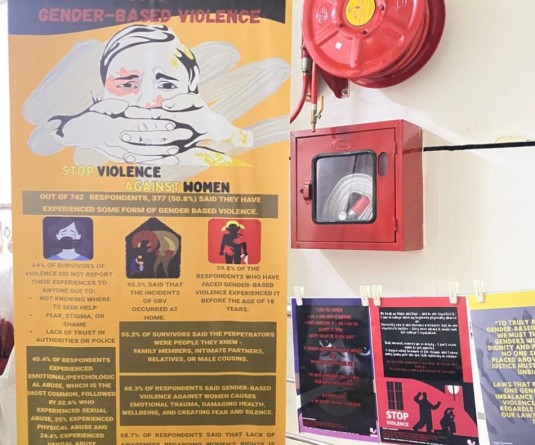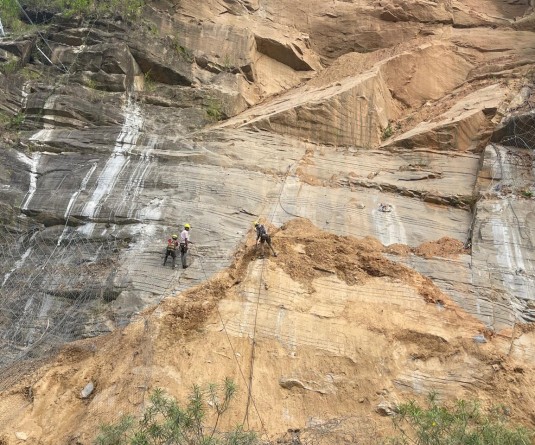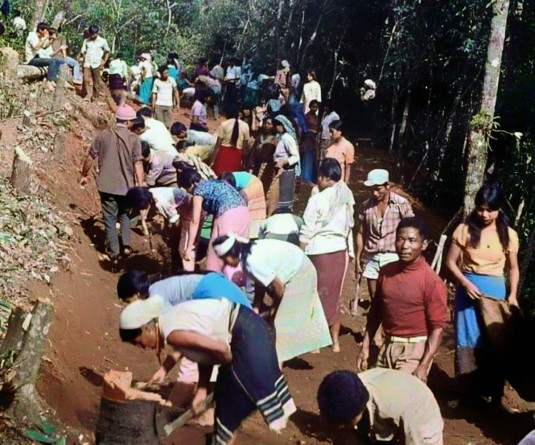
Morung Express News
Dimapur | January 29
Spills from the Oil and Natural Gas Corporation (ONGC) well sites which severely destroyed Changpang and Tsorri villages in Wokha district is one among the several cases of conflict caused by climate change and environmental disputes in India, according to a map of global ecological conflict.
The Environmental Justice Atlas (AJAtlas), released in the December 2015 issue of the Current Science – A Journal of Research revealed that India, Colombia and Nigeria have the most cases of conflict caused by climate change and environmental disputes. More than 200 conflicts in India have been caused by ecological disputes and scarcities of basic resources such as water and forests. Colombia has 101 and Nigeria has 71 environmental conflicts, the report said.
According to EJAtlas, the Changpang and Tsorri villages oil spill case falls under the category of fossil fuel and climate justice/energy (1st level) and oil and gas exploration and extraction (2nd level).
More than two thousand people have seen their farmlands, forests and water sources they rely on for their survival, contaminated because of the spillage, it said.
Details on the project on their website: ajatlas.org said ONGC began extraction since 1981 after acquiring permission from the Government of Nagaland in 1973 to explore Oil and Natural Gas in the villages without obtaining the Free Prior and Informed Consent of the indigenous communities as per the national and international law articles.
About 1.02 metric million tonnes of crude oil were extracted between 1981 and 1994. However, the ONGC has not disclosed the quantity of oil extracted during exploration in the period 1971 to 1981.The ONGC drilled 29 wells in the Changpang area during the year 1973-1994. Out of these, 21 wells in Changpang area were oil bearing and 2 wells were gas bearing, the report stated.
Visible environmental impacts, according to the AJAtlas include soil contamination, oil spills, deforestation and loss of vegetation cover, surface water pollution/decreasing water (physico-chemical, biological) quality, mine tailing spills. Loss of livelihood, land dispossession, Loss of landscape/sense of place while there was potential harm of displacement, loss of traditional knowledge, practices and cultures were among the socio-economic impacts triggered by the oil spills.
From the North East India, thirteen (13) cases of conflict caused by climate change and environmental disputes have been mapped.
They include the Mapithel Dam project, Imphal Airport Expansion, Tipaimukh Dam project, Solid Waste Management Plant Lamdeng Khunnou, Imphal and Oil exploration from Manipur; the Kyelleng-Pyndengsohiong, Mawthabah (KPM) uranium mining project in Meghalaya, the Lower Martam Garbage Dump Ground in Sikkim, 2000 MW Lower Subansiri Hydroelectric Power Project in Assam, the Gumti Hydroelectric Power Project at Thirthmukh, Tripura, Tuirial Hydro Power Project, Serlui-B Hydropower Project and the 210 MW Tuivai Hydro Electric Project from Mizoram.
According to scidev.net, VV Krishna, EJOLT project director and professor at the Centre for Studies in Science Policy at Jawaharlal Nehru University, New Delhi is quoted as saying that one reason for India recording the maximum number of conflicts is the thrust on industrialization, mining for natural resources and industrial units exploiting loopholes in environmental governance.
Conflicts related to water management appear highest in India with 59 cases, followed by conflicts in fossil fuels and climate justice category with 47 cases and the industrial and utilities conflicts category with 36 cases.
The atlas is a work in progress and aims to map 2,500 environmental conflicts and injustices by the end of 2017.






